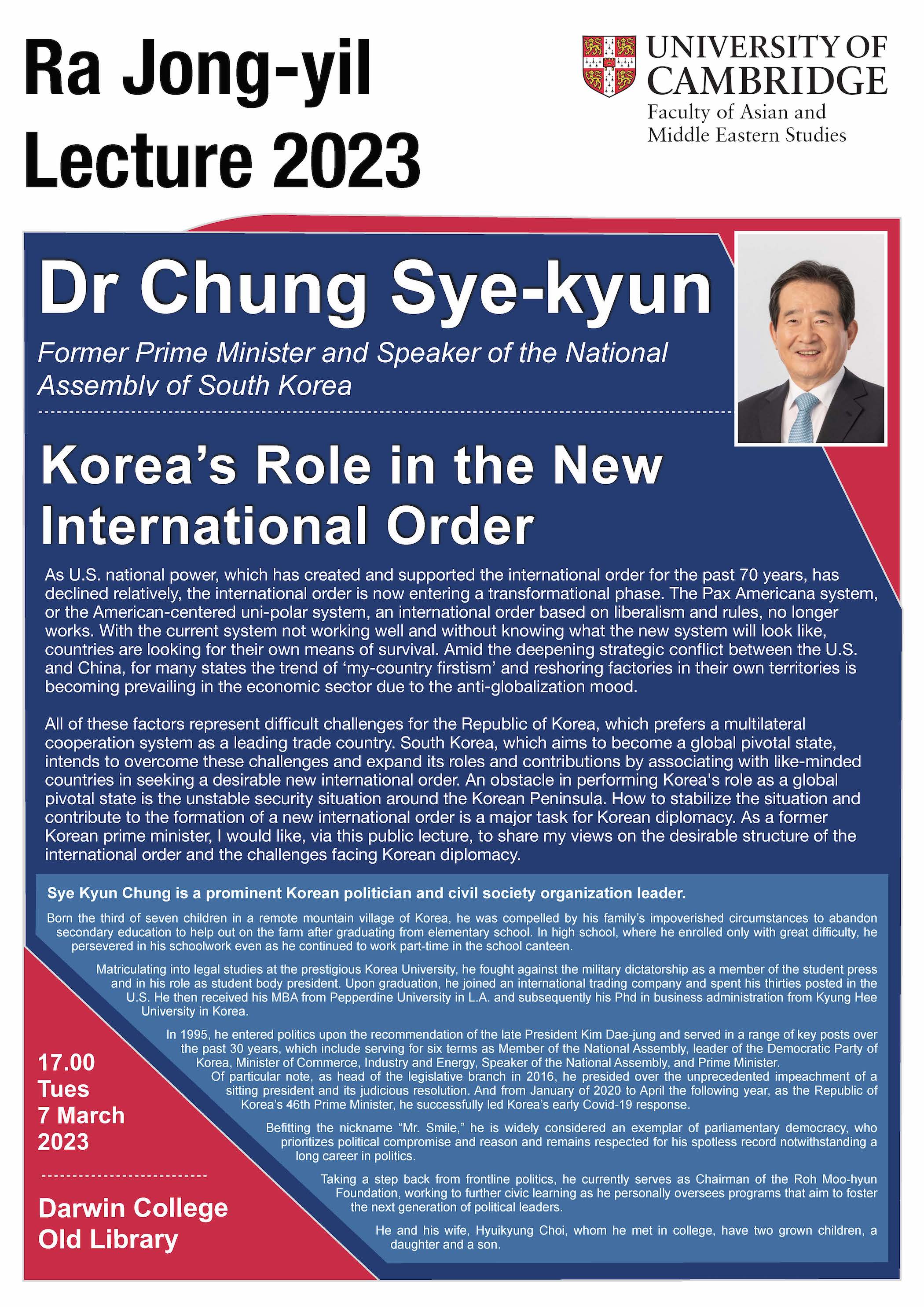Korea’s Role in the New International Order
As U.S. national power, which has created and supported the international order for the past 70 years, has declined relatively, the international order is now entering a transformational phase. The Pax Americana system, or the American-centered uni-polar system, an international order based on liberalism and rules, no longer works. With the current system not working well and without knowing what the new system will look like, countries are looking for their own means of survival. Amid the deepening strategic conflict between the U.S. and China, for many states the trend of ‘my-country firstism’ and reshoring factories in their own territories is becoming prevailing in the economic sector due to the anti-globalization mood.
All of these factors represent difficult challenges for the Republic of Korea, which prefers a multilateral cooperation system as a leading trade country. South Korea, which aims to become a global pivotal state, intends to overcome these challenges and expand its roles and contributions by associating with like-minded countries in seeking a desirable new international order. An obstacle in performing Korea's role as a global pivotal state is the unstable security situation around the Korean Peninsula. How to stabilize the situation and contribute to the formation of a new international order is a major task for Korean diplomacy. As a former Korean prime minister, I would like, via this public lecture, to share my views on the desirable structure of the international order and the challenges facing Korean diplomacy.
Sye Kyun Chung is a prominent Korean politician and civil society organization leader.
Born the third of seven children in a remote mountain village of Korea, he was compelled by his family’s impoverished circumstances to abandon secondary education to help out on the farm after graduating from elementary school. In high school, where he enrolled only with great difficulty, he persevered in his schoolwork even as he continued to work part-time in the school canteen.
Matriculating into legal studies at the prestigious Korea University, he fought against the military dictatorship as a member of the student press and in his role as student body president. Upon graduation, he joined an international trading company and spent his thirties posted in the U.S. He then received his MBA from Pepperdine University in L.A. and subsequently his Phd in business administration from Kyung Hee University in Korea.
In 1995, he entered politics upon the recommendation of the late President Kim Dae-jung and served in a range of key posts over the past 30 years, which include serving for six terms as Member of the National Assembly, leader of the Democratic Party of Korea, Minister of Commerce, Industry and Energy, Speaker of the National Assembly, and Prime Minister. Of particular note, as head of the legislative branch in 2016, he presided over the unprecedented impeachment of a sitting president and its judicious resolution. And from January of 2020 to April the following year, as the Republic of Korea’s 46th Prime Minister, he successfully led Korea’s early Covid-19 response.
Befitting the nickname “Mr. Smile,” he is widely considered an exemplar of parliamentary democracy, who prioritizes political compromise and reason and remains respected for his spotless record notwithstanding a long career in politics.
Taking a step back from frontline politics, he currently serves as Chairman of the Roh Moo-hyun Foundation, working to further civic learning as he personally oversees programs that aim to foster the next generation of political leaders.
He and his wife, Hyuikyung Choi, whom he met in college, have two grown children, a daughter and a son.
| Contact |
|---|
| Dr Nuri Kim: nk588@cam.ac.uk |
